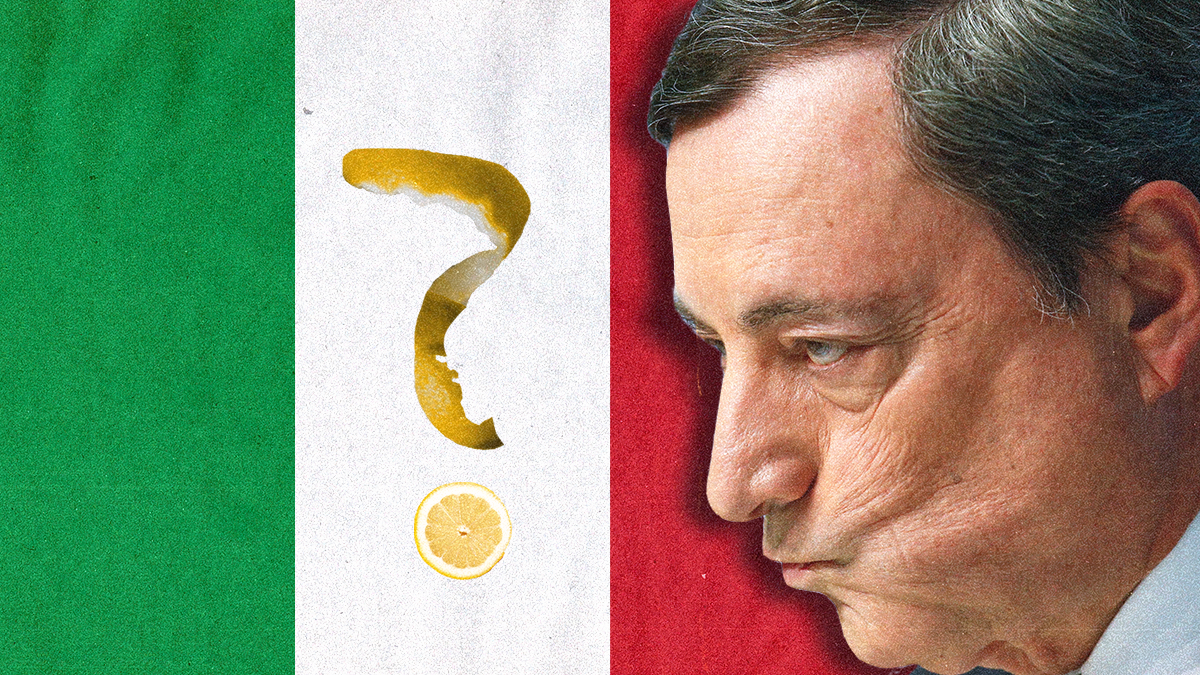July 14, 2022
Italy’s government has been thrown into a period of uncertainty. On Thursday, Prime Minister Mario Draghi offered to step down after the populist 5-Star Movement, one of the biggest parties in his coalition government, refused to back his 23 billion euro ($23.1 billion) energy crisis relief plan. But President Sergio Mattarella refused the resignation.
The former European Central Bank chief, known as “Super Mario” for saving the Eurozone from its debt crisis more than a decade ago, acknowledged that he’d lost the confidence of his “unity” cabinet.
Strings attached. The lower house of parliament signed off on the relief bill last week. But in the upper house, Thursday's vote on it had been tied to a prior vote of confidence in Draghi himself.
"While the 5-Star MPs approved the first measure, they left the room when it was time to vote on the second," says Eurasia Group analyst Federico Santi. Meanwhile, many 5-Star members have spent the past week complaining about the bill.
Still, by offering to step down, "Draghi stood by his word as he repeatedly maintained that he won’t go on if 5-Star exits the coalition," Santi adds.
This has been building. While a shock to many, Foreign Minister and 5-Star leader Luigi di Maio said some party members “have been planning for months for an outbreak of a crisis to put an end to Draghi’s government.”
A month ago, the party itself was on the verge of breaking apart and away from the coalition due to skepticism over Italy’s support for Ukraine. And weeks before that, the far-right Brothers of Italy Party won big in local elections; they’re not members of the coalition, but their strong showing point to a possible shift in the nationwide political tenor.
What happens now? Normally, if the PM’s resignation is accepted, the president would consult with parties to find a new candidate. But now things are up in the air. Mattarella has instead asked Draghi to address parliament about the state of the coalition.
Draghi’s much-awaited speech is unlikely to be scheduled before next Wednesday, which means Italy is left in political turmoil — and without the relief package Italians desperately need to help ease the impact of the energy crisis.
Unsurprisingly, well-known former PMs Giuseppe Conte, Enrico Letta, Matteo Renzi, and even Silvio Berlusconi jumped at the opportunity to try and seize the spotlight amid the chaos. But before it’s anyone else’s turn to try and gain the majority’s trust, Mattarella is giving Draghi a chance to prove he still has it.
More For You
With close ties to both the US and China, can Singapore survive in an increasingly fragmented and chaotic world? Singapore’s President Tharman Shanmugaratnam joins Ian Bremmer on the GZERO World Podcast.
Most Popular
Think you know what's going on around the world? Here's your chance to prove it.
UK Prime Minister Keir Starmer shakes hands with Chinese President Xi Jinping, ahead of a bilateral meeting in Beijing, China, on January 29, 2026.
Carl Court/Pool via REUTERS
This week, Prime Minister Keir Starmer became the first UK leader to visit China in eight years. His goal was clear: build closer trade ties with Beijing.
Igmel Tamayo carries charcoal to sell on the side of a road for use as cooking fuel in homes, after US President Donald Trump vowed to stop Venezuelan oil and money from reaching the island as Cubans brace for worsening fuel shortages amid regular power outages, on the outskirts of Havana, Cuba, on January 12, 2026.
REUTERS/Norlys Perez
© 2025 GZERO Media. All Rights Reserved | A Eurasia Group media company.
